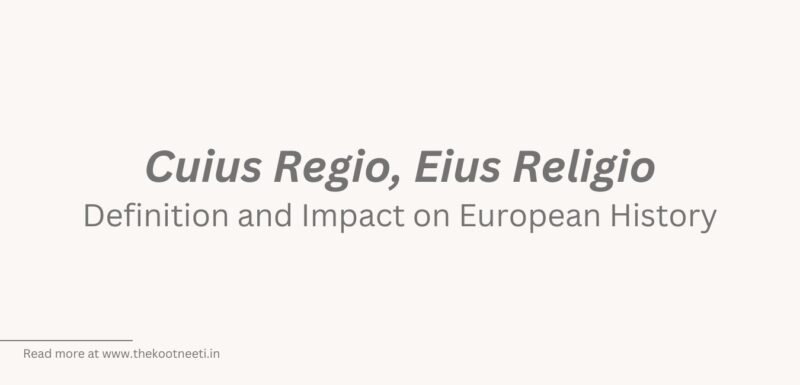Cuius Regio, Eius Religio: Definition and Impact on European History

Cuius regio, eius religio is a Latin phrase that means “whose realm, his religion.” (Pronunciation: “KWEE-us REY-jee-oh, AY-us REH-lee-jee-oh.”)
It is a principle that was established by the Peace of Westphalia in 1648, which ended the Thirty Years’ War in the Holy Roman Empire and the Eighty Years’ War between Spain and the Dutch Republic. The principle of cuius regio, eius religio allowed rulers to determine the religion of their subjects. This meant that the religion of the ruler became the official religion of the state, and all subjects were required to follow that religion. The principle of cuius regio, eius religio was established in order to end the religious wars that had plagued Europe for centuries and to establish religious tolerance in the region. It is still an important principle in the modern system of international relations.
It had a significant impact on the history of Europe. Some of the main impacts of this principle include:
- The end of religious wars: The principle of cuius regio, eius religio was established in order to end the religious wars that had plagued Europe for centuries. It allowed rulers to determine the religion of their subjects, which meant that people were no longer fighting over religious differences.
- The establishment of religious tolerance: The principle of cuius regio, eius religio established religious tolerance in Europe, as it allowed people to practice the religion of their choice as long as they were not in a region where a different religion was the official religion.
- The establishment of the modern system of nation-states: The principle of cuius regio, eius religio recognized the sovereignty of the various nation-states in Europe, which marked the beginning of the modern system of nation-states.
- The end of the Holy Roman Empire: The principle of cuius regio, eius religio marked the end of the Holy Roman Empire, which had been a major political force in Europe for over a thousand years.
- The recognition of the independence of the Dutch Republic: The Peace of Westphalia, which established the principle of cuius regio, eius religio, also recognized the independence of the Dutch Republic, which had been fighting for independence from Spain for over 80 years.


















